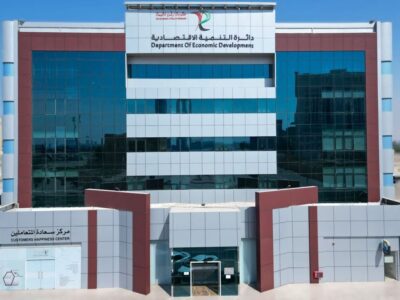A small team has plunged into the icy waters of temporary district cooling and generator plant hire, but with a unique strategy.
Notoriously tricky to get into, much less steer through recession, plant hire has got to be one of the most difficult industries to sell in, particularly in a market with established players.
During the downturn of the early 1990s, many firms in Europe went to the wall, but according to Milan Balac, MD of new power rental firm RSS, the answer is simple; “They didn’t manage their cashflow”, he said, meaning, those firms weren’t quick to pick up on customers who didn’t pay their bills on time.
While a lot has changed in the market since the firm’s April 2007 inception, there are several aspects that give the company a unique selling point. For a start, the fleet is straight-out-of-the-crate new. “As of January this year, we’ve invested a lot of money in our rental fleet of generators and portable air conditioners, along with all that makes a company work, technicians, front office staff and so on” said UAE general manager Lee Cox.
Brand new
Brand new equipment gave the company a competitive advantage, and the firm quickly picked up some big contracts, initially concentrating of the cooling side of the business.. “We had some major district cooling projects on the Palm and other places.” Cox said.
“It very quickly became apparent that the market for power generation was huge and it was a logical market to get into. We needed [gensets] to run our chillers, along with associated equipment, power generation cables and the like.”
Of course, anybody who has tried to buy a genset recently, particularly the larger types, will tell you that they are not available of the shelf. Lead times of many months are fairly commonplace.
However, RSS had implemented a strategy of only working with one manufacturer for each equipment category. In the case of the generator sets this was Cummins. “We placed substantial orders [with them]” said Cox. “Being from the industry myself, I realise that huge lead times go with the big generators, 500kv and above.
We had good cooperation with Cummins and the long lead times were all part of our business plan – We were absolutely aware of it from day one.”Placing big orders with one firm helped grease the wheels with them, and as a result RSS have enjoyed a good relationship with the firm. “Cummins come to the table in terms of sorting delivery times and bringing the schedule forward for us. Because we have done the planning for the generators, we are able to give Cummins the lead times they are looking for. It’s not a difficult transition – they’ve actually been delivering generators two months earlier than required” noted Cox.
As the engines have all been new, so far problems with them have been negligible. For the most part is has just been a matter of routine servicing, though as Balac point out, the modern units with the all-electronic management and very high pressure injectors need a laptop rather than a spanner in most cases.
However, having a unified fleet should help with sourcing spare parts in future.
Lead times
Lead times were also an issue in the portable cooling business. “There was a long lead time for some of the chillers.” Balac said. “In many circumstances it was longer than the wait for generators.” The contract for supplying the cooling machinery was put out to tender, which brought in some surprising results.
“We asked all the major suppliers for a certain type of plant and York came back with the most tonnage and the smallest footprint which gave us the most efficiency which suited the rental market completely.”
This modern gear brought another saving which became particularly relevant during the diesel peak earlier in the year.
“People don’t realise that fuel can be as much as half of the rental cost” explained Balac. “Getting the message through to the customers that these new plants offer much better efficiency is important, as the ones that do the hiring aren’t necessarily the ones paying for the fuel.”
Strategy
To break into a market that already has large and established players, requires a very precise business plan. “There were two main things we examined when we started out” Cox explained. “One was the market and the other was a competitor analysis. So we looked at what our competitors were doing, and it was almost as if they had got complacent.”
“There was only one major player and one minor player in the chiller plant business. The major player has such a diverse fleet, with many brands of equipment, we thought if we could stick two just two makers, we thought it would be better in terms of spare parts supply, local support and also you just build a relationship with one particular supplier. The biggest advantage we could give any company was footprint, reliability and efficiency. When we actually floated the tender we gave the manufacturers the opportunity to select their best equipment, we said, ‘give us your best dollar per tonne’ for this specification and it was amazing what came back.”
While the credit crisis is unlikely to go away fornow, firms with a sound grip of cashflow, and good quality stock are likely to make it through.







